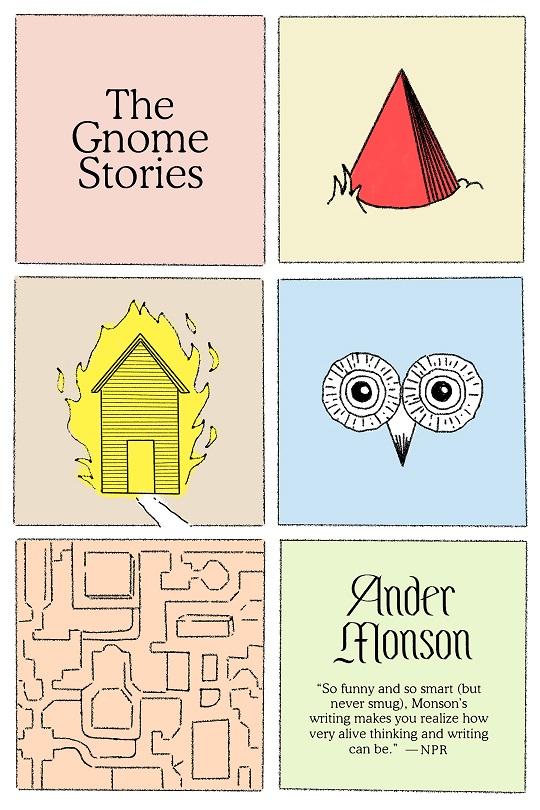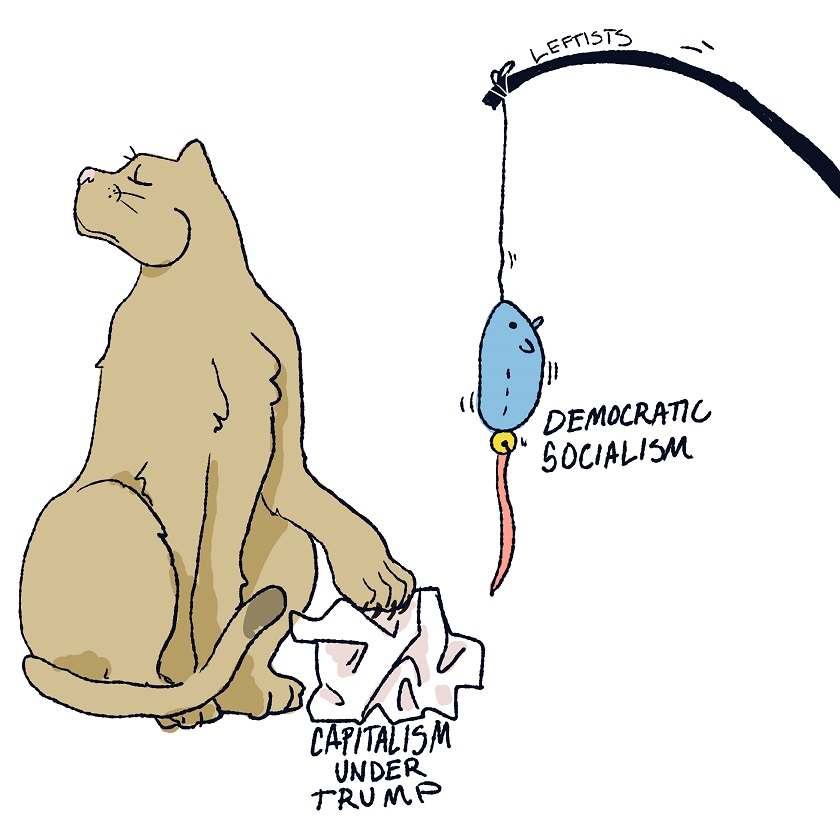Author of ‘Gnome Stories’
A conversation with Ander Monson
Judging by the cover, Gnome Stories looks like a light literary affair. Simple pictures rest atop six panels, each a different bright pastel. It says, slice of life, maybe a story or two about gnomes. That’s the cover, but the contents are anything but. Monson’s stories wrestle with grief and the mystery of life’s bigger questions. Though, there are absurd and comic moments that take the edge of some of the challenging possibilities they pose.
The author is Ander Monson, from northern Michigan, professor of literature at University of Arizona and author of eight books. He toured the country reading from his two recently published books, Gnome Stories, a collection of fictional short stories and I Will Take The Answer, a collection of essays from Monson’s real life. For such an established writer with a blue check mark on his social media accounts, he is tremendously personal. Thoughtful but unpretentious, our conversation covers Joyce’s impenetrable Finnegan’s Wake to Schwarzenegger’s gleefully accessible Predator.
I’m curious, particularly with the first couple of stories, where do you get the guts to write something so honest? Especially to the point that it might upset readers?
I never thought not to do it. They are messed up, but they’re also kind of comical. One thing I like, George Saunders is a good example, where you’re laughing along and you end up in a fairly disturbing place that there’s not an obvious way out of. I like that effect—I don’t think I would do a story that has fairly dark content that doesn’t have that aspect of humor to it. I write things in fiction that I wouldn’t write in nonfiction. I try to edit certain aspects of it, not for readers’ comfort, but I want the experience to be a pleasurable one, not just a disturbing one…both [are] fine.
There are important traumatic events in these short stories that aren’t mentioned. How come?
It’s part of the craft—I think that mystery is really important. There are certain things that aren’t resolvable. It creates an unstable backdrop for the story. In every first-person narrative there’s an element of, is this completely reliable? It creates a sneaking feeling in the story. I’m a reader that likes to do some work. I don’t want to be told what everything means, I want to do some meaning making, and all the media that I like leaves me space to do that. It’s one of the only techniques I believe in as a reader…It’s like in Lovecraft. There’s all these unnameable things. That’s why the movies suck! When you see the Thing it becomes kind of stupid. I want to give the reader enough space and enough material to come to their own conclusions.
It presents a question to the reader that could be Occam’s razor or the worst thing you’ve ever imagined.
It’s very human. We put faith in a lot of people we shouldn’t have put faith in. Why do we do that? Because there’s something in us that wants to believe that they are this kind of person. I guess that’s another kind of unreliability. It questions some of the trust we have in ourselves.
A reoccurring symbol throughout the stories is pornography, Whats the deal with that?
These are lonely characters who are on their own in various ways. Pornography can be its own little pit that a lot of people can get stuck in. Doesn’t mean it’s bad. It can be a labyrinth.
Pornography to me is like finding your Dad’s Hustlers…a quaint idea, really. Now, you make one wrong click and you’re in furry land! There’s something about adult DVD stores today that are very quaint, almost charming. I mean, I’m not going in, but there is something very familiar and pleasant about that. It’s like an old technology.
Do you have any advice for aspiring writers?
You need to find a way to entertain yourself…because the kinds of validation you get in the world are very minor and few and far between. In my writing there are a lot of inside jokes based on conversations with my friends. Most of it is for everyone, but some of it is like a fun joke for me or like five friends. In a way I’m writing it for my friend Paul. This sense of pleasure that when he reads it he will recognize it and be entertained by it…if you can write like that and to people that matter for you, the external part doesn’t matter so much.
And of course you’ve just got to grind. All of these stories started out terrible. It all sucks until it doesn’t. Occasionally you get lucky and the 100th story you write comes out clean, but it’s because you practiced.
A lot of what I’ve done has been to build communities where I didn’t see a community.
You make a space for like-minded people. If you do it honestly, that makes a big difference and people see that. It’s true, you create spaces and make relationships and share each other’s works.
Sometimes being a literary citizen, is what it takes to build spaces for art that you love. If you can do that honestly, I think that’s really very valuable.






